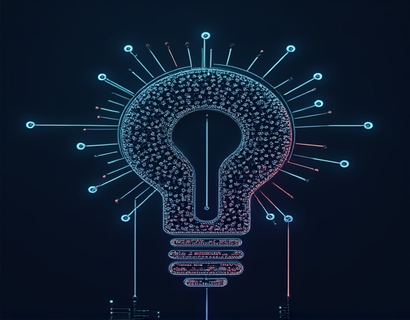AI Chat Interface: Revolutionizing Access to Legal Insights and Lawyer Connections
The integration of Artificial Intelligence in the legal sector has given rise to a transformative tool: the AI chat interface. This innovative platform harnesses the power of AI to bridge the gap between users seeking legal advice and the professionals who provide it. By leveraging advanced algorithms and natural language processing, this technology empowers both individuals and professionals to navigate the complex landscape of legal information with unprecedented ease and confidence.
Simplifying Access to Legal Information
The primary function of an AI chat interface in the legal domain is to provide users with quick and accurate access to crucial legal information. Whether it's understanding basic legal terms, exploring the nuances of contract law, or staying updated on recent judicial decisions, the AI chat interface serves as a comprehensive resource. This is achieved through a combination of natural language understanding and a vast database of legal knowledge, allowing users to receive tailored responses to their queries.
Natural Language Processing for Intelligent Insights
A key component of this technology is Natural Language Processing (NLP), which enables the AI to comprehend and interpret human language in a contextually relevant manner. This means users can interact with the chat interface using everyday language, without needing to employ legal jargon. The AI then processes this input to deliver insights that are not only accurate but also easily understandable, breaking down complex legal concepts into digestible pieces of information.
Streamlining the Search for Legal Guidance
Finding the right legal guidance can be a daunting task, often requiring extensive research and consultation with multiple professionals. The AI chat interface streamlines this process by acting as a personal legal assistant. Users can input their specific needs or concerns, and the AI provides a curated list of relevant legal resources, including articles, case laws, and expert opinions. This not only saves time but also ensures that users are exposed to a diverse range of perspectives and information sources.
Connecting Users with Lawyers
One of the most significant benefits of the AI chat interface is its ability to connect users with appropriate legal professionals. By analyzing the user's query and matching it with a database of qualified lawyers, the AI can suggest potential contacts based on expertise, location, and client reviews. This direct line to legal experts ensures that users can receive personalized advice and representation, tailored to their unique legal challenges.
Enhancing Legal Decision-Making
The ultimate goal of integrating AI into legal services is to empower users to make informed decisions. By providing comprehensive and accessible legal insights, the AI chat interface helps individuals and professionals navigate their legal options with confidence. Whether it's drafting a contract, understanding employment law, or exploring intellectual property rights, users can rely on the AI to offer evidence-based guidance, reducing the risk of misinformation and poor legal choices.
Building Trust Through Transparency
Trust is a critical factor in the lawyer-client relationship, and the AI chat interface fosters this by promoting transparency. Users are provided with clear information about the legal professionals they are connected with, including their qualifications, experience, and areas of expertise. Additionally, the AI can offer insights into the typical costs and timelines associated with different legal services, helping users make financially informed decisions.
Supporting Legal Professionals
While the AI chat interface is designed to benefit end-users, it also offers valuable tools and resources for legal professionals. By integrating with this technology, lawyers can expand their reach, enhance their service offerings, and improve their efficiency.
Increased Accessibility for Clients
For lawyers, the AI chat interface means a broader client base. Potential clients who might have been deterred by the complexity of legal processes can now access basic information and initial consultations more easily. This increased accessibility can lead to more cases and a diversified client portfolio, ultimately contributing to the growth of a legal practice.
Efficient Case Management
The AI can assist legal professionals in managing their cases more efficiently. By integrating with calendars, document management systems, and other legal tools, the AI can help lawyers stay organized and focused. For instance, it can remind lawyers of upcoming deadlines, suggest relevant case law, and even assist in drafting legal documents based on predefined templates and best practices.
The Future of Legal Services
The convergence of AI and legal services marks a significant shift in how legal advice is delivered and consumed. As this technology continues to evolve, we can expect even more sophisticated applications, such as predictive analytics for legal outcomes, automated dispute resolution, and personalized legal planning. However, it's essential to recognize that while AI can augment the legal profession, it cannot replace the human touch and ethical judgment that are fundamental to legal practice.
Ethical Considerations and Regulatory Compliance
The deployment of AI in legal services must be guided by strict ethical standards and regulatory compliance. Ensuring data privacy, avoiding bias in AI algorithms, and maintaining the confidentiality of client information are paramount. Legal professionals and developers must work together to establish guidelines that balance innovation with the protection of user rights and the integrity of the legal system.
Conclusion
The AI chat interface represents a pivotal advancement in the legal sector, offering unparalleled access to legal insights and connections to legal professionals. By simplifying the complexities of legal information and streamlining the path to legal guidance, this technology empowers users to make informed decisions with confidence. As the legal industry continues to embrace AI, the potential for enhancing both user experience and professional efficiency is immense, paving the way for a more accessible and equitable legal landscape.










































